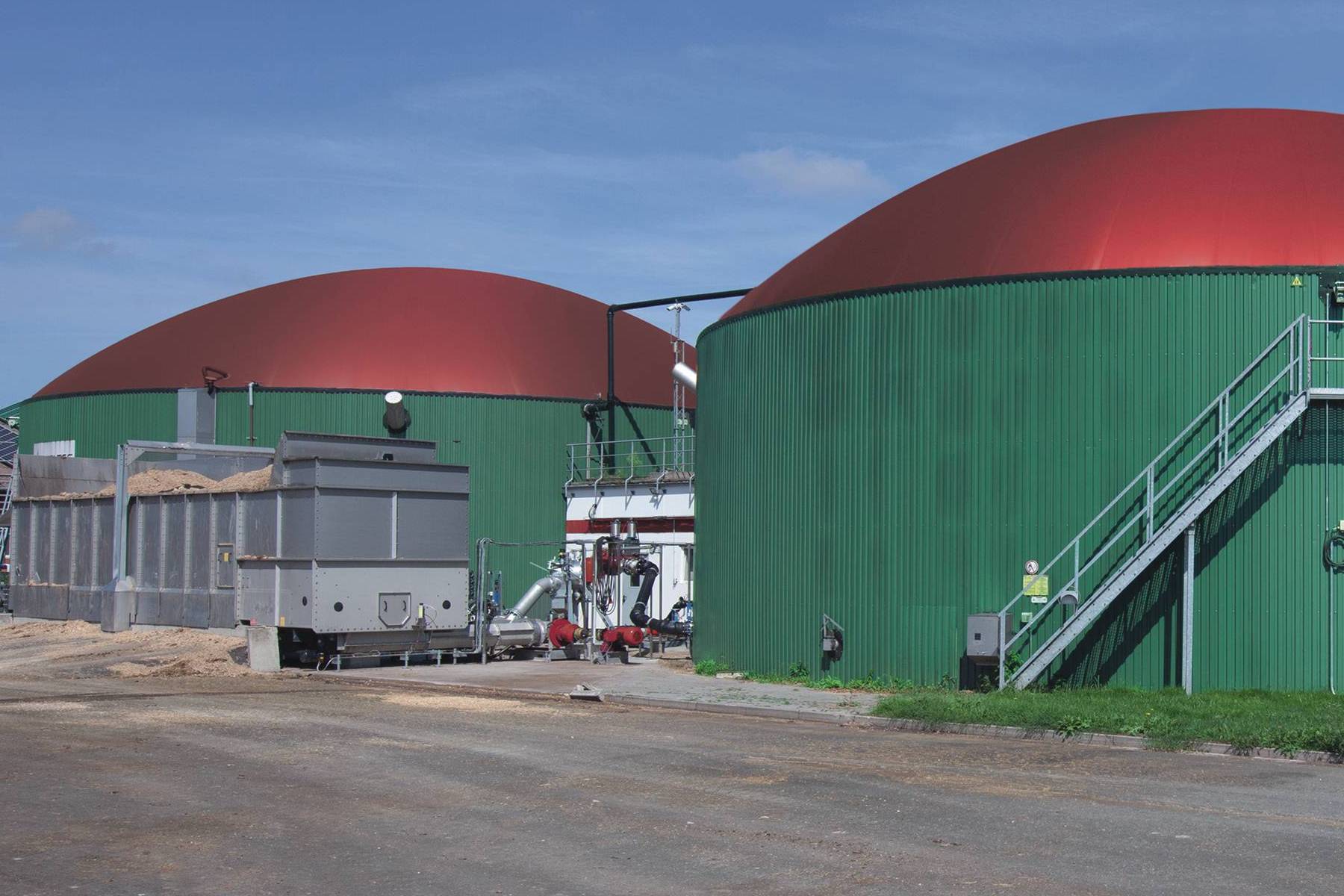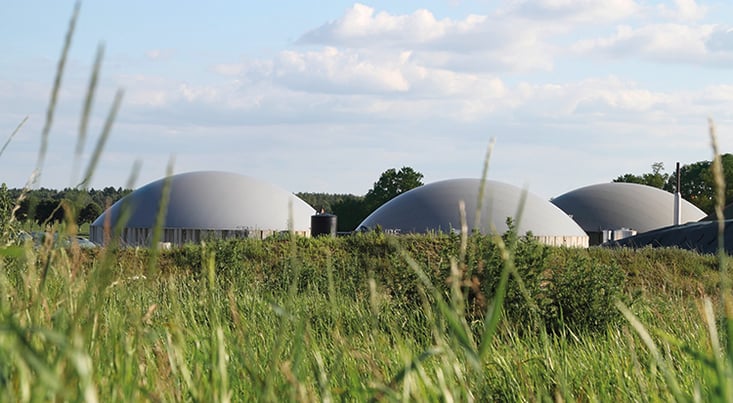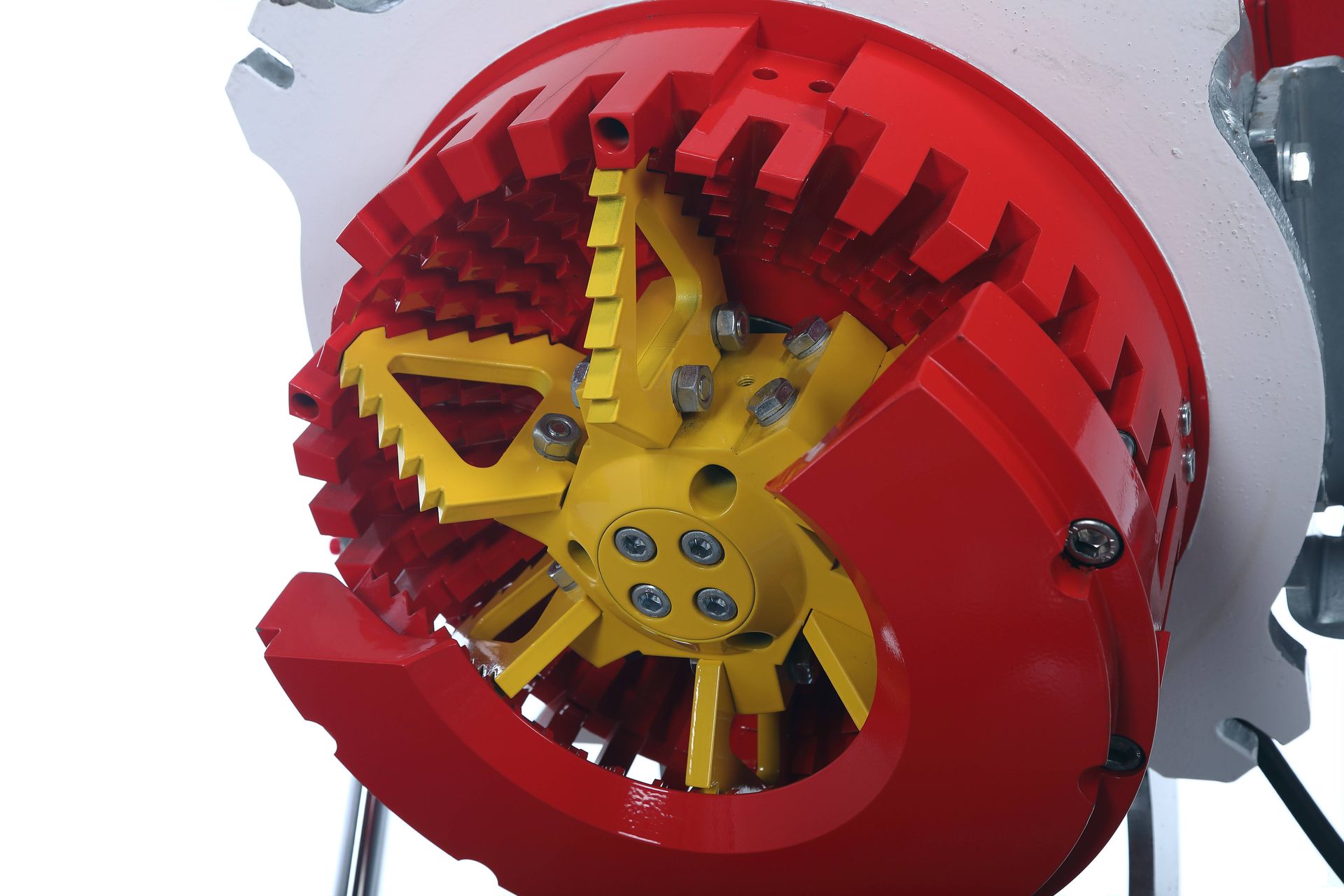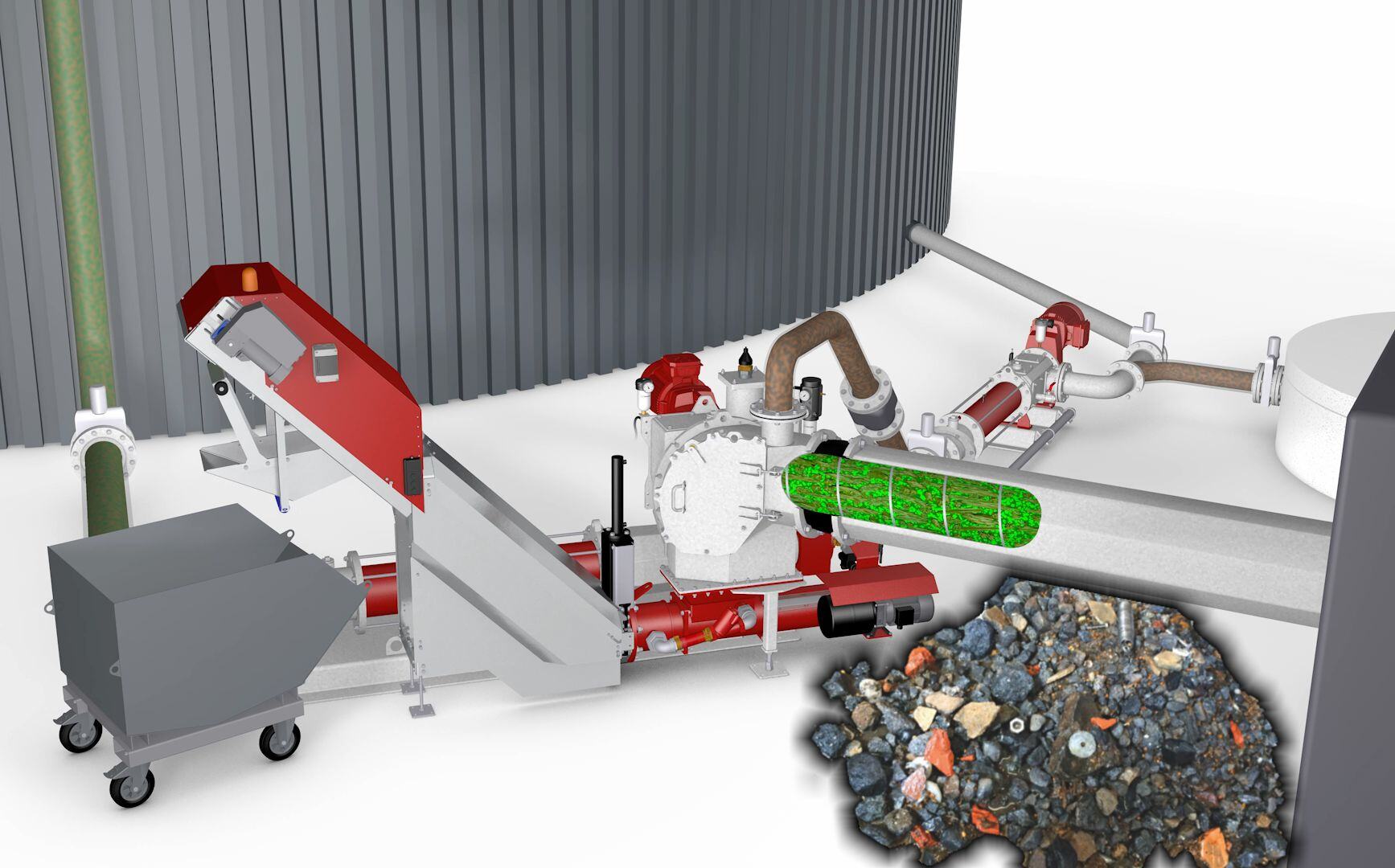Are biogas installations sustainable?

The transition from nuclear and coal energy to sustainable energy sources is in full swing. In addition to wind power and solar energy, biogas is also making a contribution to our sustainable future. What are the benefits of using a biogas installation and how sustainable are they really?
How does a biogas installation work?
In a biogas installation, organic waste or biomass can be converted into biogas by bacteria in an anaerobic room (without oxygen). This space is called a fermenter and is sealed to make it airtight. Inside, constant temperatures and pH values prevail, which allow fermentation of the substrate. Anaerobic digestion in the digester ultimately produces the biogas.
Biogas is a renewable energy that can be stored and called up on demand. It can be upgraded and then fed into the natural gas grid. In addition, cars can run on biogas, for example, or boilers can be powered by biogas.
Weather-independent sustainable energy source
In combination with wind power and solar energy, biogas installations provide the foundation on which future sustainable energy generation will be built. But what exactly makes them so sustainable?
Sustainable energy sources such as solar plants or wind power plants are only efficient in regenerating energy when the weather conditions are right. Consequently, if the weather is overcast or there is no wind, significantly less energy is produced. Energy production by a biogas installation is much more predictable.

This produces biogas day and night throughout the year, is not subject to weather-related fluctuations and can adjust the energy output to the demand. Biogas is therefore the ideal solution to compensate for fluctuations that occur with other renewable energies. This makes biogas an ideal complement to solar plants and wind turbines.
Utilization of renewable biomass
Renewable biomass that is not used elsewhere is often used as an energy source for biogas production. The energy stored in it would be lost without further utilization. The biomass in question is mostly landscape maintenance material or cuts from grassland that are not used in livestock farming.
Obtaining energy from residues and wastes
In addition to renewable biomass, energy can also be obtained from residual materials or waste products. Materials that cannot otherwise be put to good use can be used in a biogas installation to generate energy.
Slurry and manure can also be usefully fermented. If they are stored in the open air for a long time, climate-damaging gases such as methane and CO2 are released into the atmosphere when they decompose. However, if the residual products ferment in a biogas installation the residual energy contained can be used efficiently and environmental pollution avoided. In addition to naturally occurring residual materials such as slurry and manure, food waste, waste from food production or the brown bin can also be used in the biogas installation to produce energy. In this way, senseless rotting can be avoided and the energy obtained can replace conventional energy sources.
Fermentation residues are used as fertilizer
After the fermentation process has taken place, fermentation residues remain in the biogas installation. These can be reused in a meaningful way in line with the natural cycle. For example, fermentation residues can replace artificial fertilizer, which is otherwise not sustainably mined or produced in distant countries. Fermentation residues are also an ideal starting material for producing high-quality liquid fertilizers, which can then be transported economically over long distances. Compared to slurry, fertilization with already fermented residues releases significantly fewer odor emissions. They also contain significantly less chimeras, pathogens or germs.
A versatile solution to diverse problems
A biogas installation offers the opportunity to process residual products profitably while at the same time protecting the environment. The process of fermentation provides us with valuable energy and the residual products can also be reused in a meaningful way in the sense of a sustainable cycle. Feel free to request more information about the latest technology for your biogas plant at Vogelsang!

